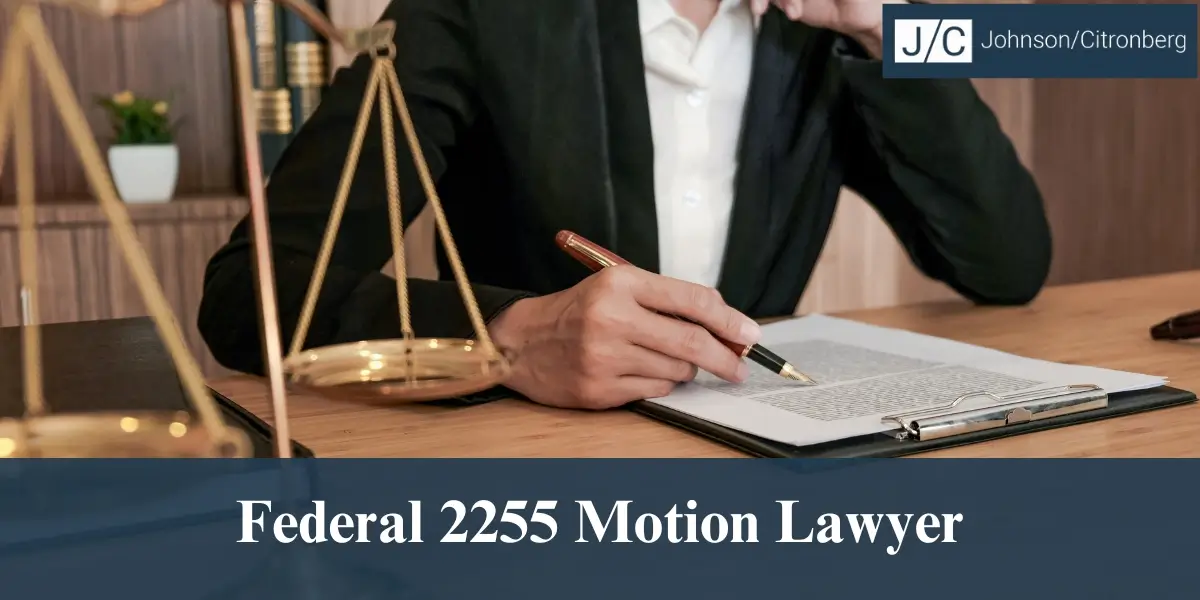Federal 2255 Motion Lawyer
Your federal criminal case is not over just because the judge has imposed a sentence. You may still have the opportunity to challenge your conviction, reduce your sentence, or be released from prison altogether. If you have been convicted of a crime in federal court, but believe that your sentence was imposed unfairly or that your constitutional rights were violated during the process, a 2255 motion offers a potential remedy. Under federal code 18 U.S.C. § 2255, an incarcerated person may claim that they have the right to be released either because of a Constitutional violation, the court did not have the authority to impose such a sentence, or the sentence was unlawfully excessive. In such instances, you may file a 2255 motion to vacate, set aside, or correct the sentence. Essentially, it’s a chance to challenge the legality of your conviction or sentence after the fact. With the guidance of an experienced Federal 2255 Motion Lawyer, you can navigate this complex process and work towards achieving a fairer outcome.
The best way to appeal your verdict or sentence is to hire a lawyer as soon as possible. Contact us today to discuss how we can help your case.

The Filing Process
The process for filing a 2255 motion can be complex. You need to present compelling legal arguments and evidence to support your claim. This is where having skilled legal representation, such as Johnson/Citronberg, becomes invaluable. Our attorneys specialize in navigating the intricacies of federal law. We know how to craft persuasive motions and present them effectively to the court. From conducting thorough legal research to building a compelling case strategy, we will represent you every step of the way.
One of the most common 2255 motions is based on the claim that the defendant’s Sixth Amendment constitutional right to counsel was violated through “ineffective assistance of counsel.” If you feel like your trial lawyer did not fairly represent you, let you down, or forced you to plead guilty, you should look into moving to vacate your sentence or conviction. An ineffective assistance of counsel motion is very difficult to win because in order to convince the court that your lawyer’s work led to a constitutional violation, you must prove both that their performance fell below an objective standard of reasonableness and that the case would have otherwise ended differently. With the help of an experienced criminal defense lawyer, you can carefully evaluate your case and determine if this motion is a viable path to challenge your conviction.
Courts generally must grant defendants a hearing unless the evidence conclusively shows that they would not be entitled to relief. If your motion raises legitimate issues that warrant further review, the court may grant you a hearing to present your case. If the court finds in your favor, it could result in your sentence being vacated, a new trial being granted, or other remedies to correct the injustice.
Contact Our Lawyers Team to Get Help with 2255 Motion Child Pornography Cases
Time is of the essence when it comes to filing a 2255 motion. There is generally a strict one-year limitation period which begins from the moment your conviction becomes final. Act quickly and do not navigate the complexities of filing a 2255 motion alone. Contact Johnson/Citronberg today to protect your rights and seek justice on your behalf. We will review your case, identify all possible ways to reduce your sentence, and represent you throughout the process.


